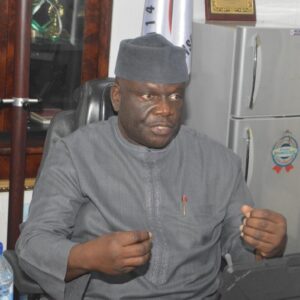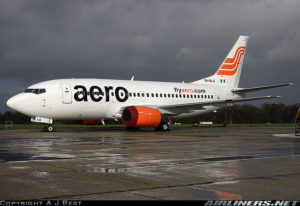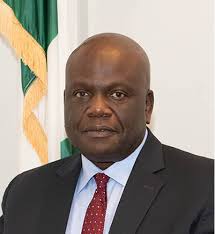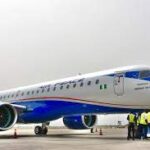
The Director General of the Nigerian Civil Aviation Authority (NCAA), Captain Musa Nuhu, has explained how the agency monitors airlines’ financial ability to sustain their operations.
He also said whenever there was no doubt the agency would step in to ensure that airlines’ economic challenges do not erode their operational safety.
Explaining why Aero Contractors suspended its flight and set to resume on Monday next week, he noted that the airline was not grounded based on safety issues.
“We did an audit of them because whatever audit you do, you have findings and they were all minor findings. There was no Level 1, 2, 3 findings. They were very insignificant. We notified them. We audited them and we found out that the issue they had was finance sustainability.
“Aviation is safety sensitive and whenever you have financial difficulty, it is just a matter of time, you will not be able to comply with all the regulatory requirements and some may start cutting corners. So, before financial issue becomes safety issue, we had a discussion with them and they on their own before we took any action, agreed with our findings and suspended their operations to enable them reorganise and get some funding to get more equipment. That is what they have done, we sat with them, they submitted, we asked for projection, which they did, we reviewed. The first one wasn’t good enough, they had to go and review it and it was quite satisfactory. We had MoU with them for payment of outstanding 5 per cent on Ticket Sales Charge (TSC). So, they are fine. As far as we are concerned, they can resume operations,” he said.
Captain Nuhu said that the regulatory authority would continue to do its best to ensure continuous safety in the air.
According to him, “We ensure compliance with all our regulations and recommended practices. We work together with the industry to see how we can assist, help the industry, but the truth of the matter is that the outbreak of Covid-19 pandemic did not only put the airlines in a difficult situation, but exposed a lot of fractions within the system. A lot of airlines didn’t globally survive the Covid-19 and some are still being affected from the impact of Covid-19.”
Like other airlines in the world, Nigerian carriers face a huge challenge but the Minister of Aviation, Senator Hadi Sirika said recently that Nigeria was adjudged as one of the first countries the airlines and aviation sector survived the Covid-19 economic devastation.
Part of the financial challenges airlines are facing in Nigeria is their inability to pay the regulatory authority and other agencies.
In August this year, NCAA alleged that airlines owed aviation agencies about N24.3 billion and insisted that the airlines must be made to pay the debts; otherwise, they would force the agency and other agencies into bankruptcy.
Also in September this year, Nuhu spoke on airlines safety and financial well-being. He assured the flying public that NCAA would ensure that any aircraft that is in the air is airworthy, while also admitting that airlines were in financial straights, just like their counterparts in other parts of the world, as the Coronavirus pandemic asphyxiated that finances of most airlines, which are now struggling to bounce back, while some have suspended their operations.
The Director General said then that the airlines must have to undergo the rigorous process of audit to ensure they have the liquidity to operate safely.
“The airlines have challenges; we have sat down with some of them, discussed with them and some of them need some injections of funds. Like Aero decided to shutdown on its own volition and they are re-organising, getting more aircraft, and expecting some injection of funds so that their financial status would grow. So, we are in discussions with them on this matter.
“Financial distress in aviation if not managed properly could turn out to be a safety issues because we don’t want airlines to start to cut corners. Those with financial difficulties if you notice, they are delaying flights, cancelling flights, but we need to work with them. We are all in this together, except where we have serious concerns in the continued existence of the airlines or serious violation, we will work with them hand on hand so that they will be able to get out of this financial challenges they found themselves,” Nuhu said.
Azman Air and Dana Air were the first airlines that were made to sign Memorandum of Understanding (MoU) on how they would pay their debts to NCAA and it became a condition for the renewal of their Airline Operator Certificate (AOC), which stipulates that after meeting other conditions for the renewal of AOC, it must sign the MoU on how it would offset its debts.
This indicated that almost all the airlines owe the agencies and as long as they are operating they continue to owe because ticket sales charge (TSC) and cargo sales charge (CSC) are generated from operations.

NCAA said then that local airlines owed it over N19 billion and $7.6 million on ticket charges they have collected from passengers but have refused to remit to the authority.
So the regulatory authority has made it compulsory that if airlines must continue to operate they must be at safe financial health that will enable them operate without jeopardizing safety in their flight service.
There were times in the past when airlines owed their personnel several months salary and it could be recalled that it was when NCAA got information that Air Nigerian, which metamorphosed from Virgin Nigeria Airways began to owe its workers that the agency ordered it to suspend operations and that ended the existence of the airline.
THISDAY






